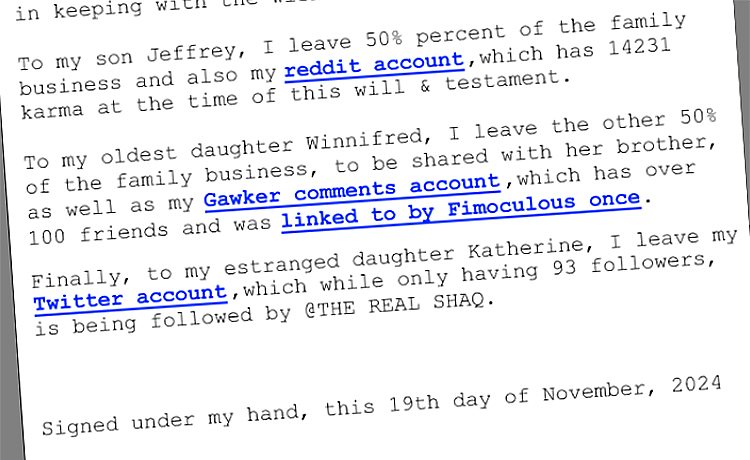If You Die in This State, Your Heirs Inherit Your Online Accounts
The future is finally upon us, my friends. No longer bound by the physical world in their efforts to pass on their legacies down the family tree, residents of the state of Delaware can rest easy knowing that should they pass from this world, their children or grandchildren will inherit their Neopets. But all silliness aside, this stipulation is actually a good trend for future families experiencing loss — here’s why.
How does this law work, exactly?
The new law, ushered in recently in Delaware, has to do with the state’s laws concerning a last will and testament. If your will is governed by the state of Delaware, your legally designated heirs (as well as your will executor, if these are not one and the same) will be granted access to your online accounts. This appears to be a more concrete extension of recent federal government guidelines on creating a “social media will”, which gives tips on having your online accounts handled in the event of your death, listed on the official government website.
By “heirs”, the law doesn’t mean children specifically. It could be your children, if you have them and are their legal parent/guardian, but it also stands for anyone close to you who you’ve essentially named as your closest next-of-kin. This could be your parents, your sibling(s), or your spouse, all of which are potential legal “heirs” even in the event that you don’t leave a legal will. Some states have even made it illegal to disinherit a current spouse or a child who is still a minor.
Why this is a good thing
As the Internet rapidly became an integral part of our world and our identities, families and friends experiencing the loss of a loved one found themselves suddenly in a frustrating position when faced with managing the online accounts of the deceased. Many found themselves struggling to gain access to their loved ones’ accounts, even getting locked out of these accounts when they managed to log on to collect memories and find comfort in snippets of their loved one’s life. The failure on the part of social media and other websites to update their policies has caused people already in mourning further pain and frustration, when they should be healing instead.
So while it seems strange for someone to “inherit” your online accounts, Delaware is taking a step in the right direction. Online accounts often host an abundance of memories, inside jokes, personal musings, and other things which family and friends can find comforting or a happy reminder during their mourning process. Locking these accounts away, and sometimes even suspending them due to attempts to access them by the deceased’s family, adds further insult to injury in a cold and robotic enforcement of profoundly outdated privacy policies. Government on any level isn’t exactly known for being experts on technology and the digital world, so if the Delaware state government can bring civil law into the 21st century, social media sites should be able to fix their own protocols.
Here’s hoping other states soon follow suit.

